There was not much time left and Andragathius knew it. The decades he had spent in the desert had withered and aged his body faster than normal. He was not sad though, rather he was relieved.
For him, the role of Emperor had been a burden. He had been an ordinary man put into an extraordinary position. Yet, he had succeeded in some things, if not all.
The Slavic invasion had been stopped and the European borders of the Empire had been secured. From Britannia to Constantinople, a wall of Roman steel guarded every entrance into the provinces. In Eburacum, the capable Attalus Commodus had succeeded Rufinus Victor as governor of the northernmost province. At his disposal was a strong garrison capable of defeating any enemy that came across Hadrian’s Wall.
The continental provinces themselves were more secure than they had been in two hundred years, thanks to the restoration of the Border Legions. They had been implement exactly as planned.
In Gaul, Legio I Italica guarded the passageways to the Frankish, Alemanii and Saxon lands. Based in Augusta Treverorum, it was commanded by Tertius Atinius, a young nobleman with limitless potential. The Alemanii threat had receded, as the ruling warlord had died without an heir, but the Franks and Saxons were still very active and someone would soon claim Vicus Alemanni as their own.
In Cisalpine Gaul, Legio II Italica watched the Alpine passes from its home fort east of Mediolanium. Its commander, Ardabarus Mamaea was also young, but had command experience and the expectation of gaining more.
In Pannonia, Legio VI Claudia Pia Fidelis protected the river crossings and the city of Carnuntum. Aquincum served as its base and the city’s governor, Nepotianus Flavius, also doubled as its commander.
Finally, in Moesia, Legio V Claudia Pia Fidelis held the Danube from a fort east of Sirmium, vowing that the enemies of Rome would never again cross its waters. Its commander, Syagrius Flavius had been dismissed as governor of Thessalonica. His appointment had been a political one, secured by fellow Nestorian Heraclianus Cipius, know as “the Mad.” The son of Emperor Spurius Cipius may have been passed over for Imperial rule, but he still held sway in the Balkans. It was not a bad choice either, for while Syagrius had proven to be a poor governor, his deficiencies in civic management mattered little on a field of battle.
Further east, the war in Asia continued, but Rome had achieved great gains there thanks to the efforts of Asterius Flavius, who was known to the masses as Asterius of the Eagles. The Easterners were still a mighty force and much blood would be shed before they finally fell, but Rome had many provinces in Asia now and the Empire could not be dislodged.
Finally, there were the accomplishments of the African Legion, which had been led by Emperor Andragathius himself. The Berbers had been able to mount a serious challenge to the Roman war machine only once. On the march west to Tingi, Andragathius’ force had been assaulted by an equal number of Berbers under the leadership of King Qabus.
A strong defensive position had been taken and the mass of the enemy charge had broken on the Roman shieldwall.
When the enemy then hesitated, the lines had opened and the cavalry had spilled forth to ride down all before them.
It had been a mere formality to Tingi itself, held only by a handful of poorly trained men.
Andragathius had decreed that with the restoration of this ancient Roman province to the Empire, it would henceforth have the “s” returned to its name. The Berber Tingi was no more, the Roman Tingis had returned. The profits of this conquest began to flow into the Imperial coffers immediately. The trade between Tingis and Corduba alone was in excess of 3,000 denarii per season. To ensure effective governance of this most important trading province, Andragathius had left his own son, aided by the best of the Emperor’s own advisors, in charge of the city. He had then begun the long march east, to Carthage for reinforcements, and from there onwards towards the Eastern enemy.
The journey was uneventful, apart from two minor skirmishes with tiny Berber forces. When Andragathius and the African Legion had finally reached Cyrene, they found that it had rebelled against the Easterners. Diplomats spoke with the leaders of the revolt, but they refused to rejoin the Empire. Force of arms succeeded where words had failed.
And so it was that Andragathius Flavius found himself in the desert west of Egypt when his body failed him.
“Sire, we should attend to the last of your duties.”
Andragathius opened his eyes and squinted at the man in front of him. One of his oldest advisors, a true friend.
“Are we already done with the rest of it?” The affairs of the realm were being put in order in anticipation of his death. A morbid practice, but one he knew was necessary.
“Yes, Augustus. As we said before, the provinces that had lived so long under pagan rule have finally been brought into the light of God.”
“There were no difficulties?” Augustus knew they had discussed this before, but his memory was fading him and he had to know. He had to know the Empire was secure.
“There were minor revolts in Eburacum and Colonia Agrippina by those who would not convert, Augustus. However, Attalus Commodus was able to quickly regain control of the former…
…and Legio I Italica put down the revolt in the latter.”
Andragathius smiled. He was immensely proud of the Border Legions and regarded them as his most important accomplishment. “It is good to see that the Empire is finally secured, from within as well as without.”
“Yes, sire. In fact, you will recall that Legio I Italica was the first of the Legions to perform its duties against the barbarians as well. While still under-strength, they responded to the siege of a border fort by a Saxon army.”
“Despite being outnumbered and having to cross a ford in the face of a numerically superior enemy with a strong shieldwall, Legio I achieved a glorious victory and demonstrated for all the value of the system.”
Yes, he had been proud when he had first heard that news. It had worked. The Empire could be secured. Peace could be brought to the provinces.
His aide cleared his throat. “Sire, we still have not dealt with the final duty.”
Andragathius had delayed this moment, but it had to be done. The Empire needed to know who would succeed him. An Empire needed an Emperor. The people needed a leader… but who? There were many choices, but Andragathius knew there could be only one final result. The heir must meet the needs of the Empire. Europe was secure, the realm converted to Christianity, the coffers full. All that remained to be done was to reunite the Roman people under one banner; the Eastern rule must come to an end.
“There is…” his voice caught in his throat. He cleared it, took a deep breath and started again. “There is only one man who can reclaim the Empire. Asterius Flavius.”
“But sire!”
“Quiet, I will have none of that. I know from what blood he is descended. Remember though that I, too, have Flavian blood in me. Do not judge a man by his predecessors; judge him by his own worth. I have heard the rumors of his ambition, but he is a good Roman and he is a great leader of men. Ambition is not wrong if it is put towards just causes and the work of God. His sword arm is strong; we must pray that his head and his heart are too. Besides… the Empire is returning to its previous glory, it should have a ruler, not another steward of the state.”
Augustus Andragathius Flavius breathed a sigh of relief. At last, his work was done.
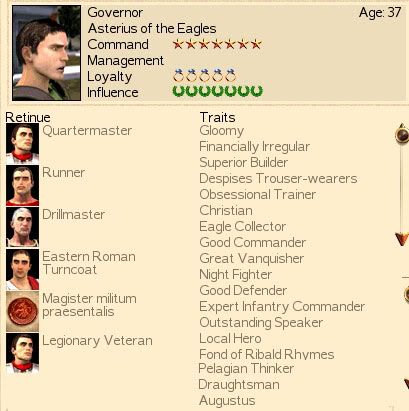








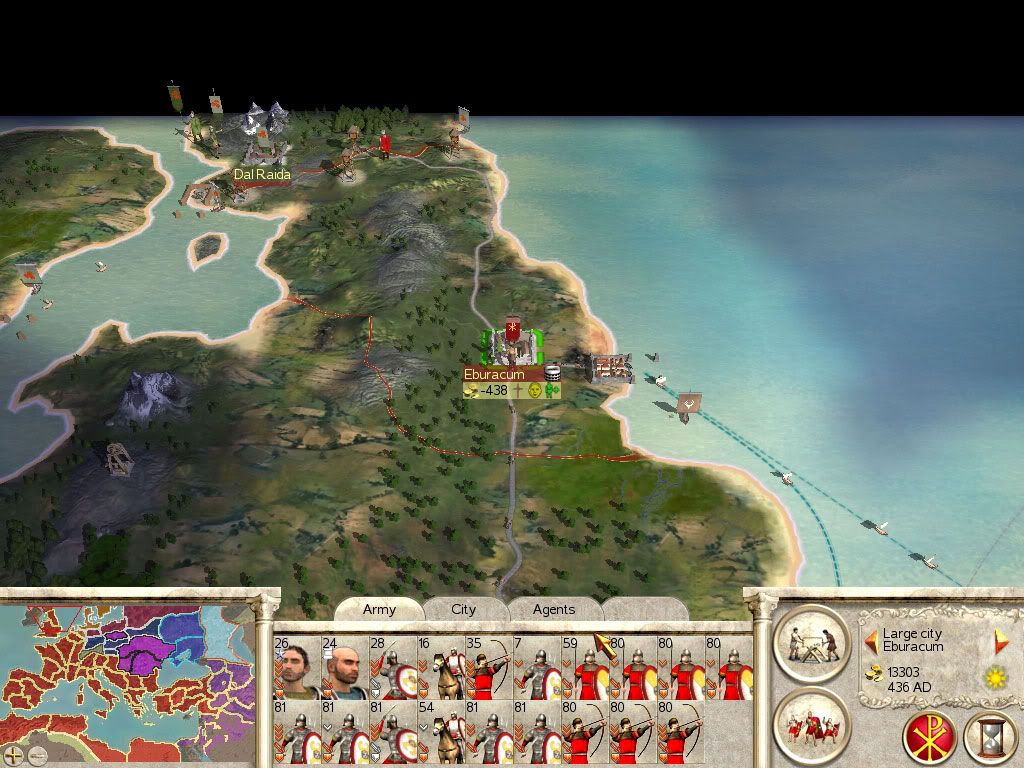
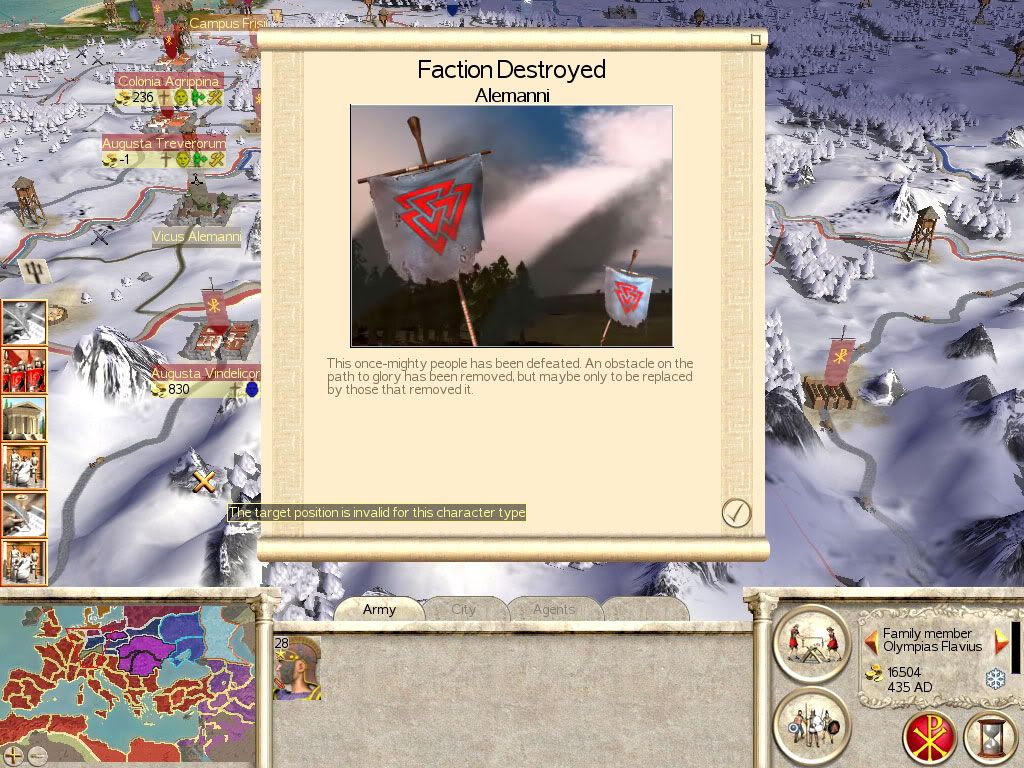
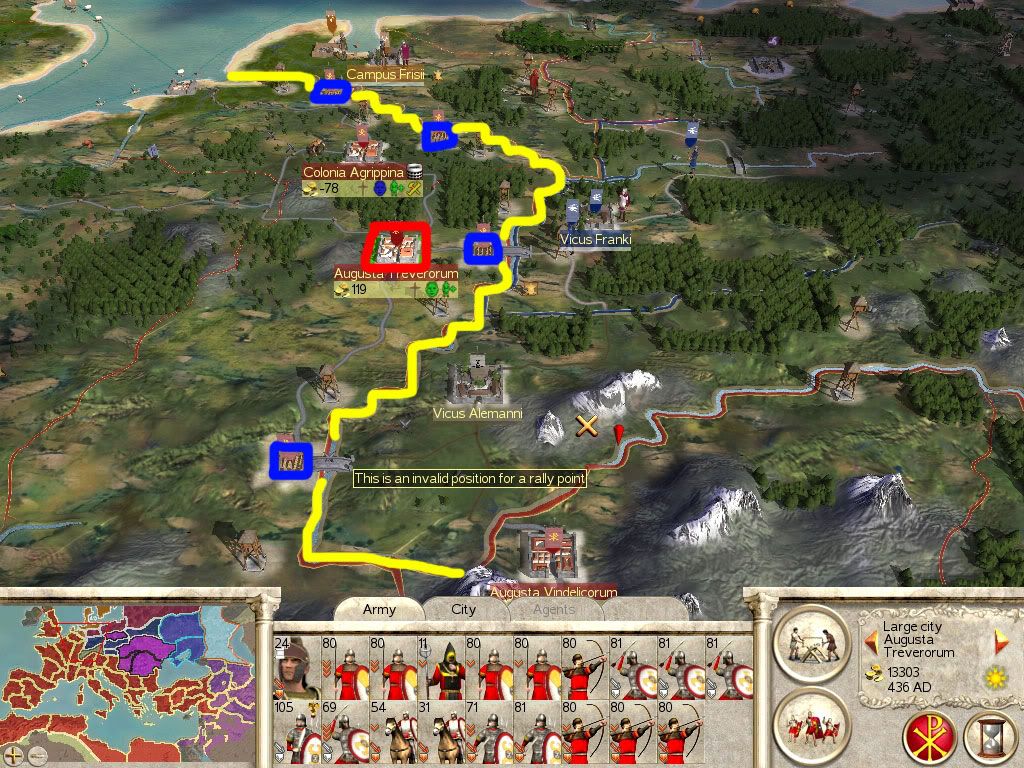
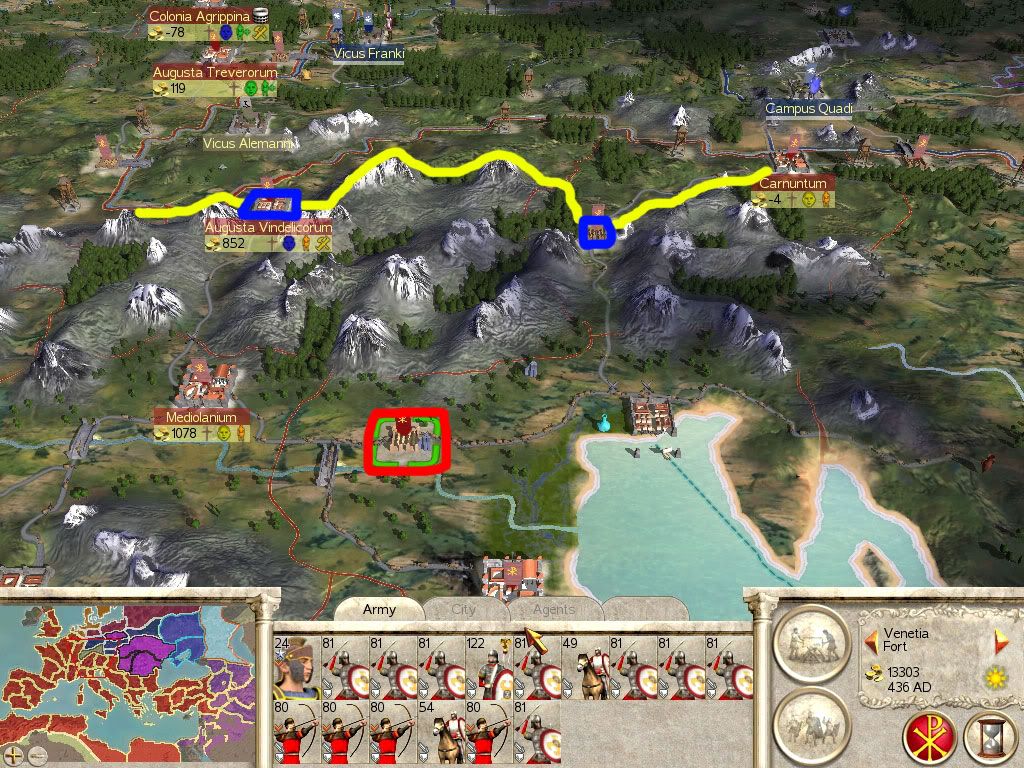
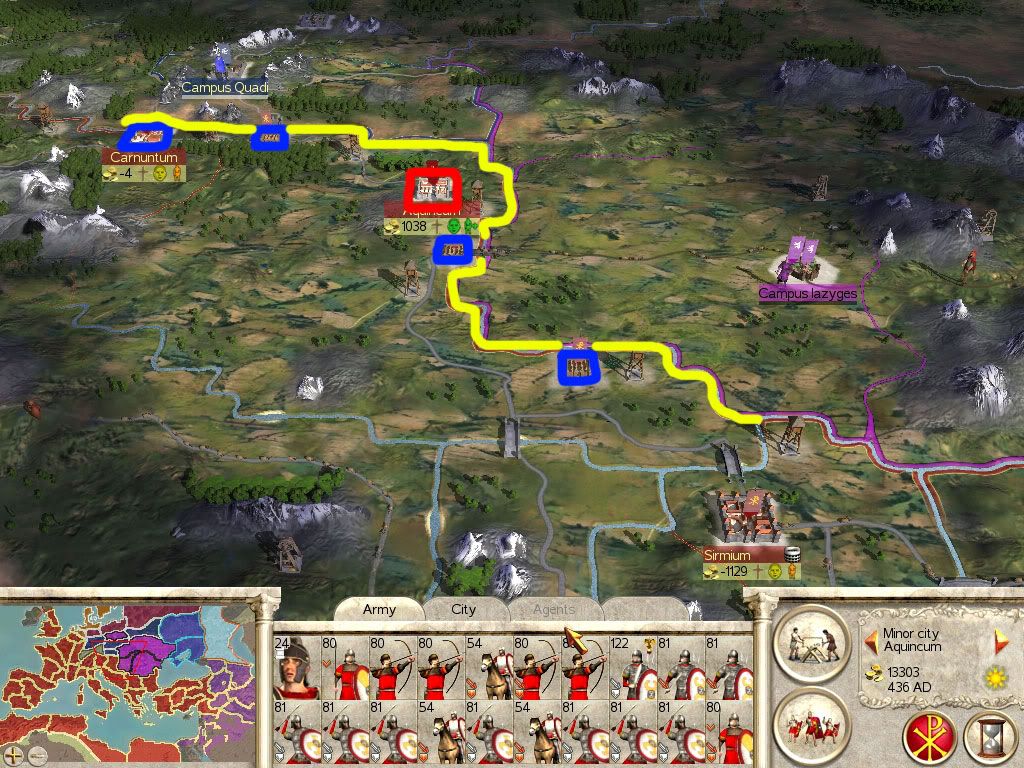
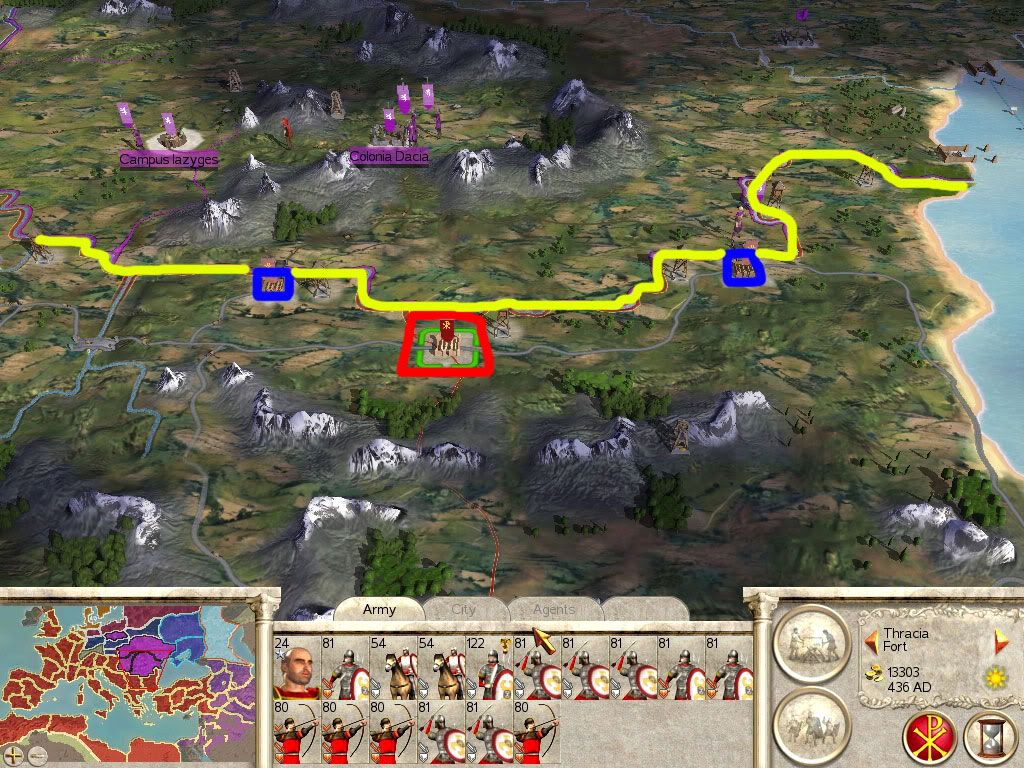
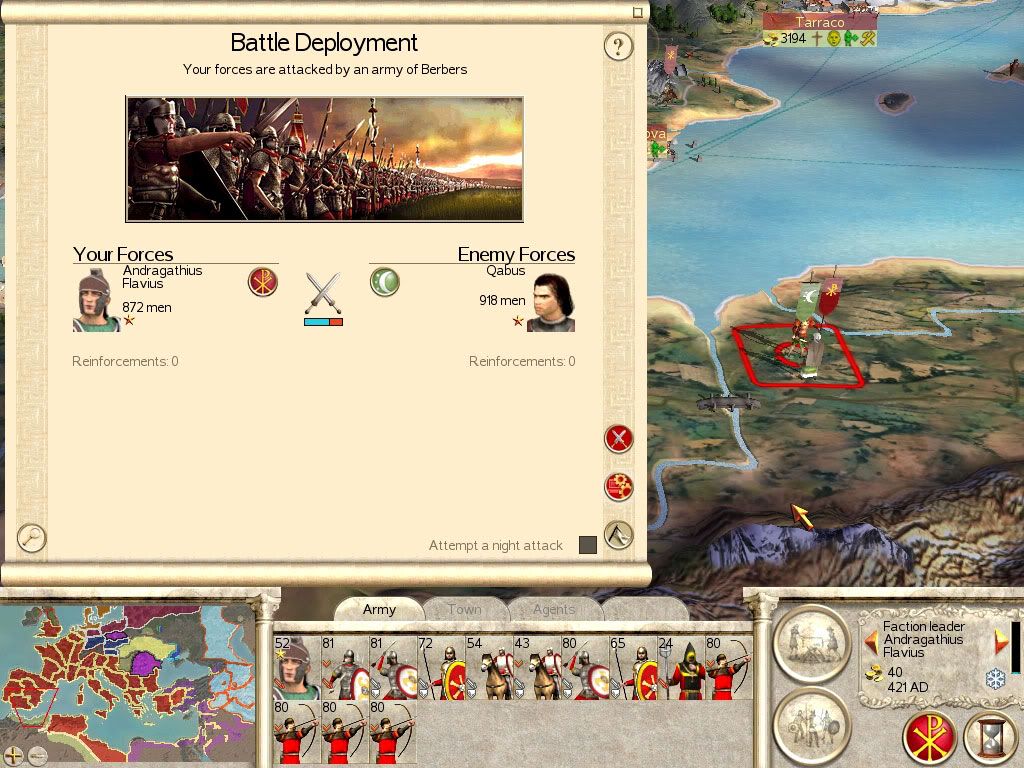
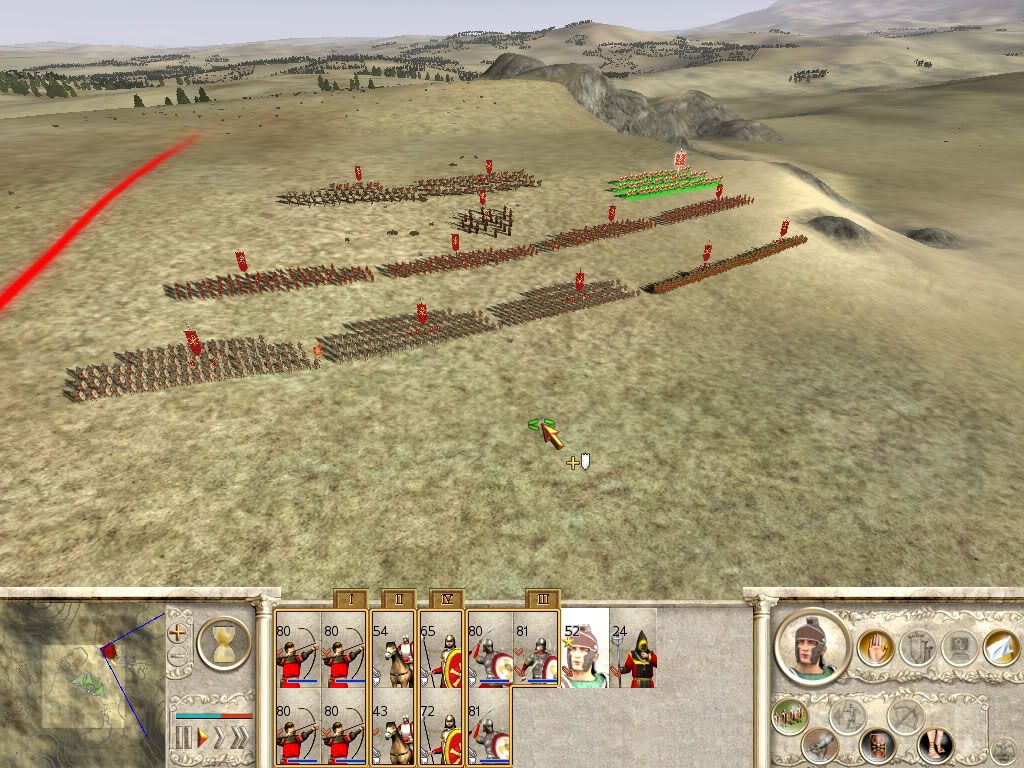
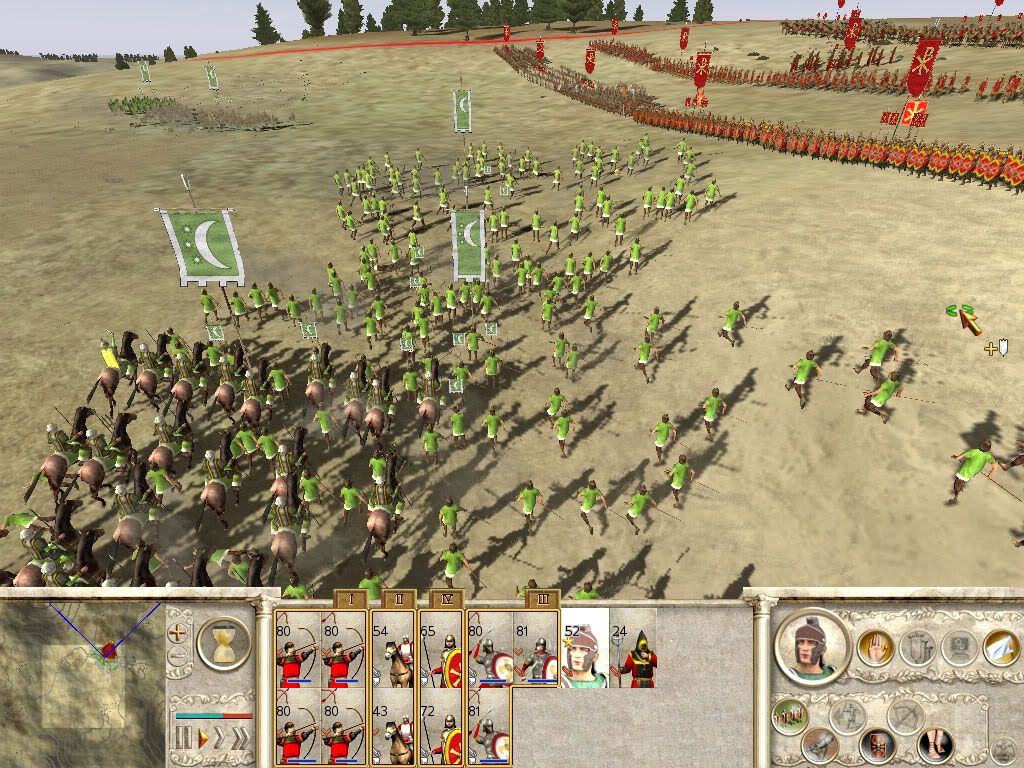
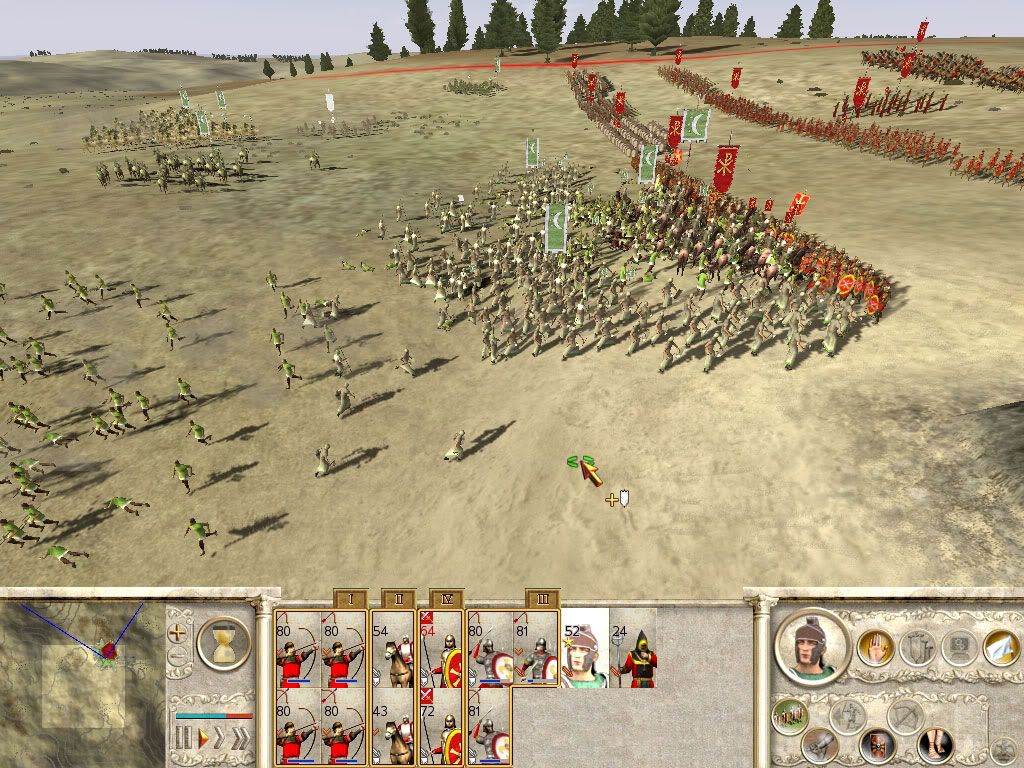
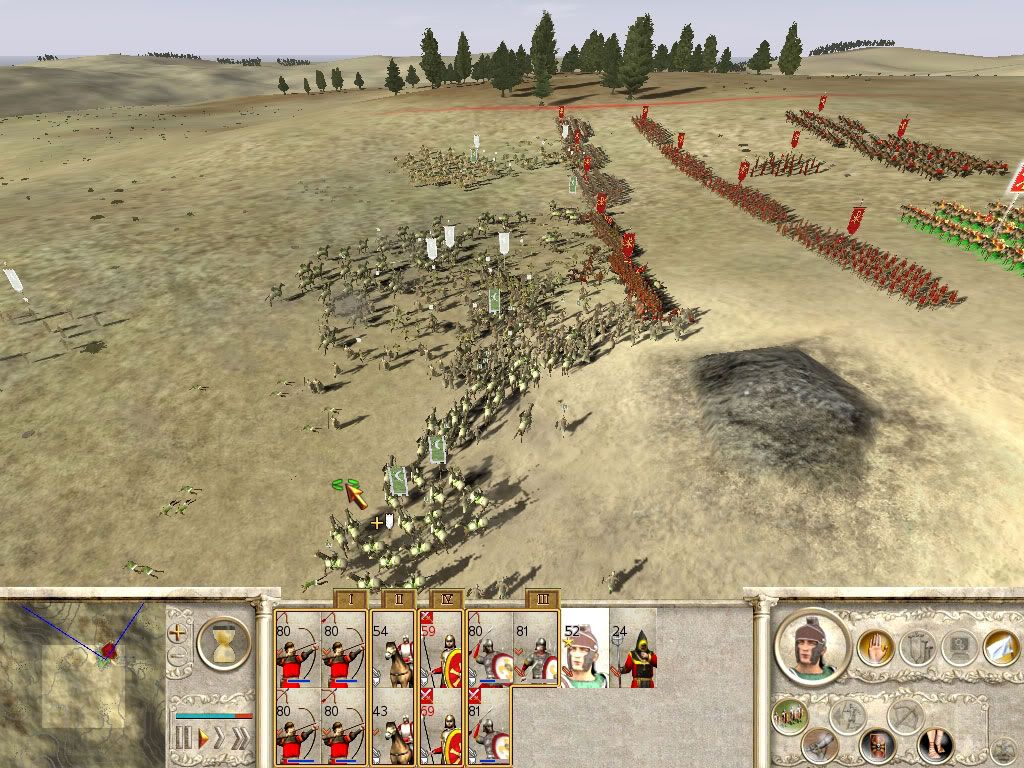
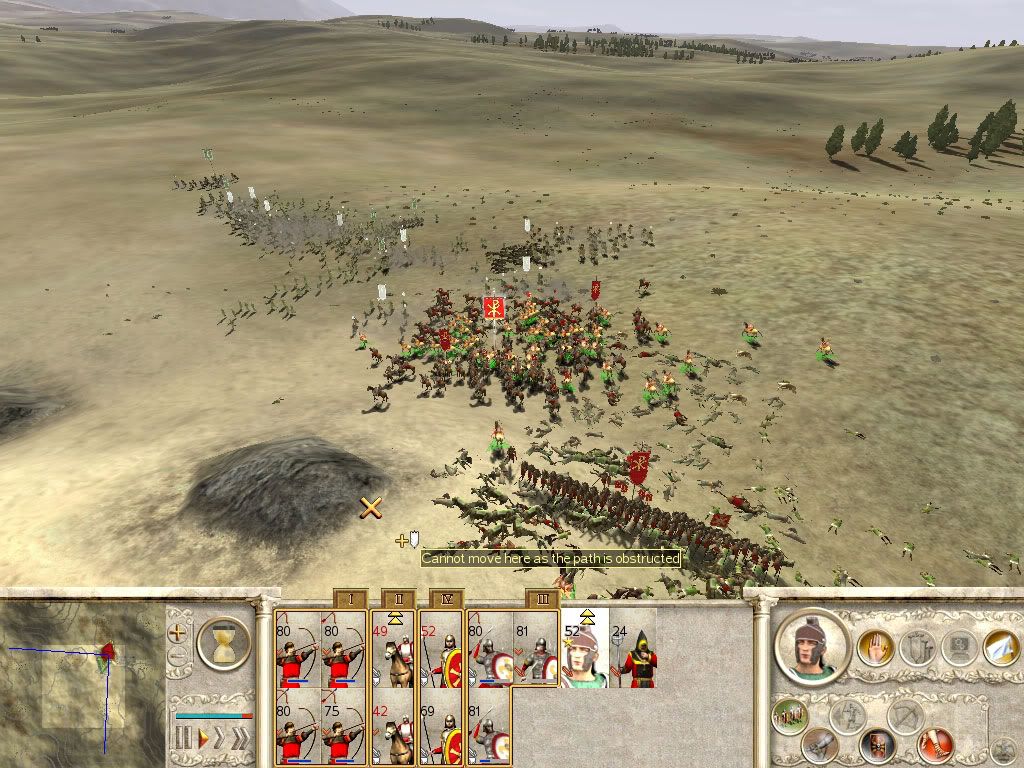
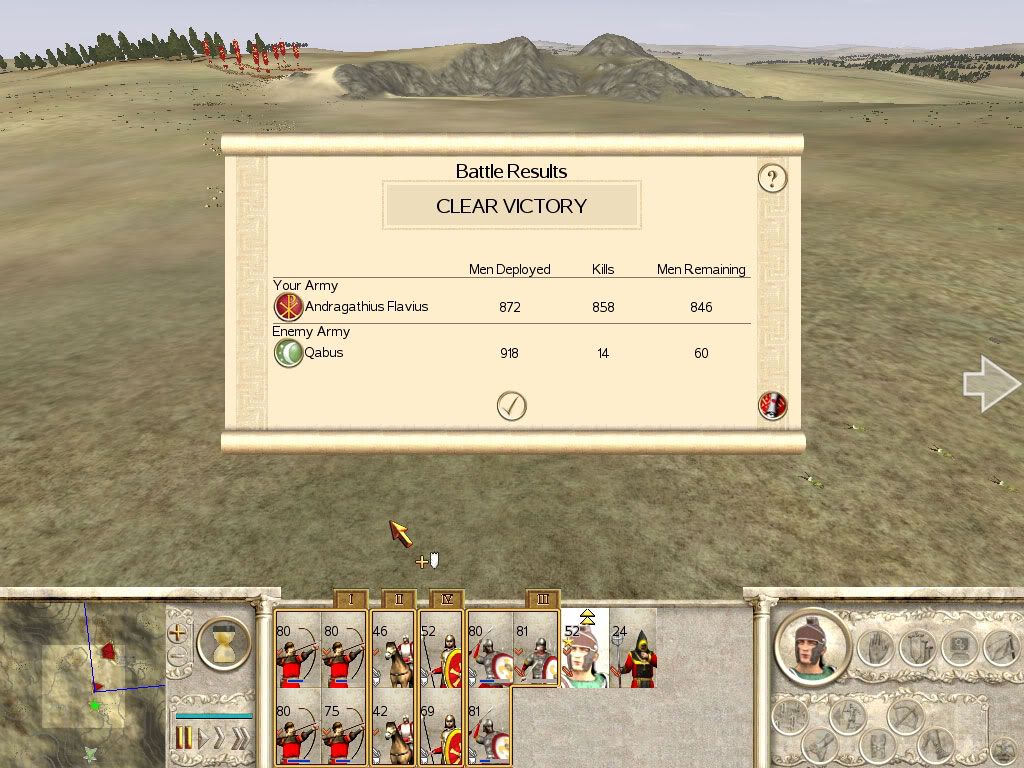
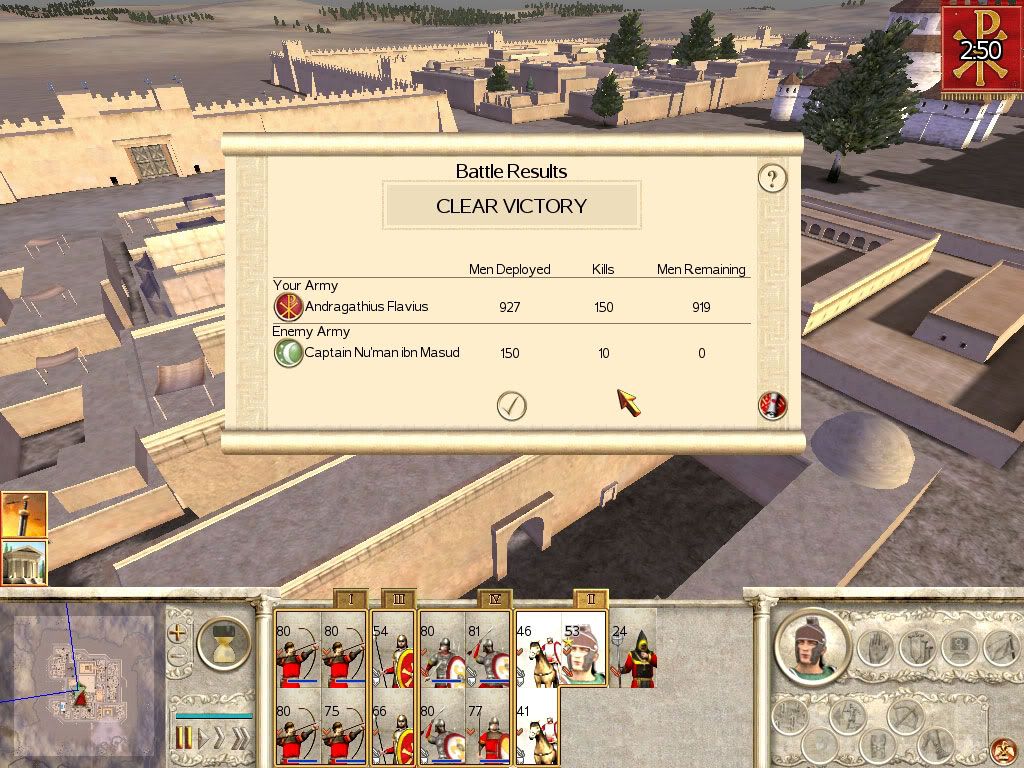
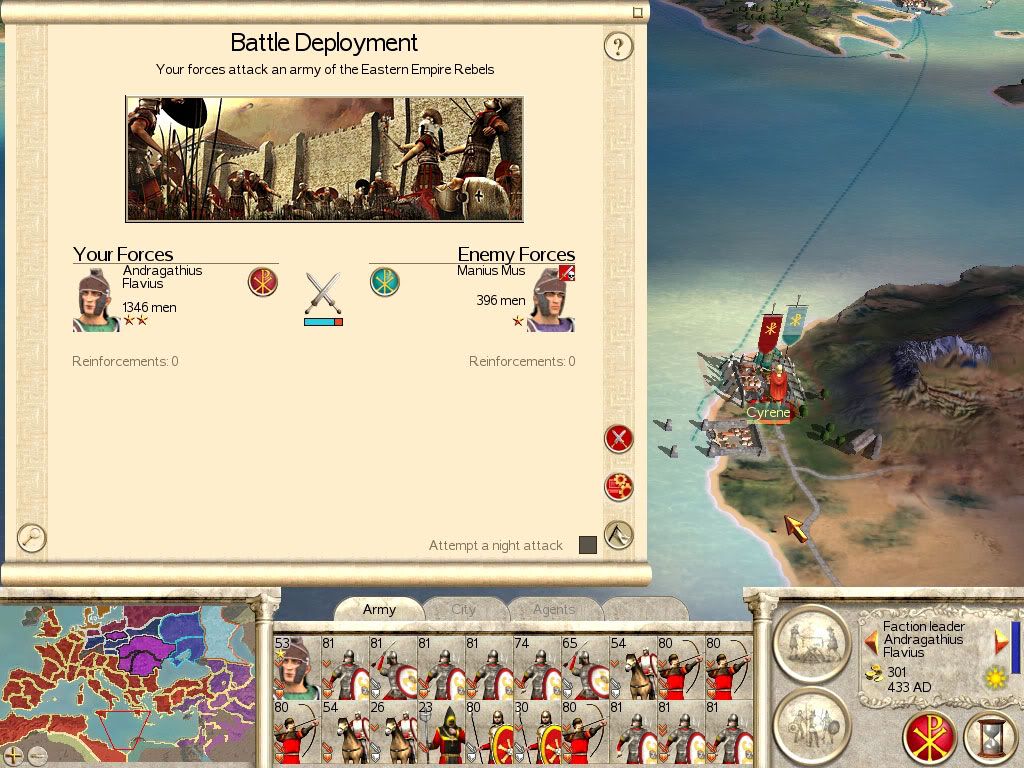
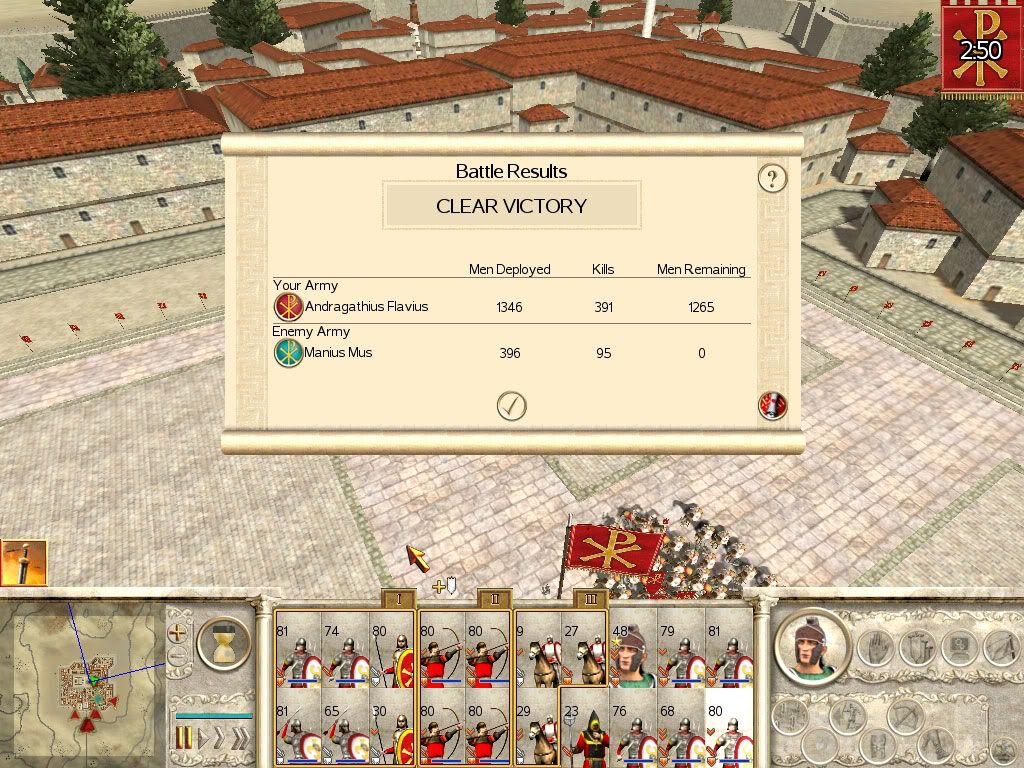
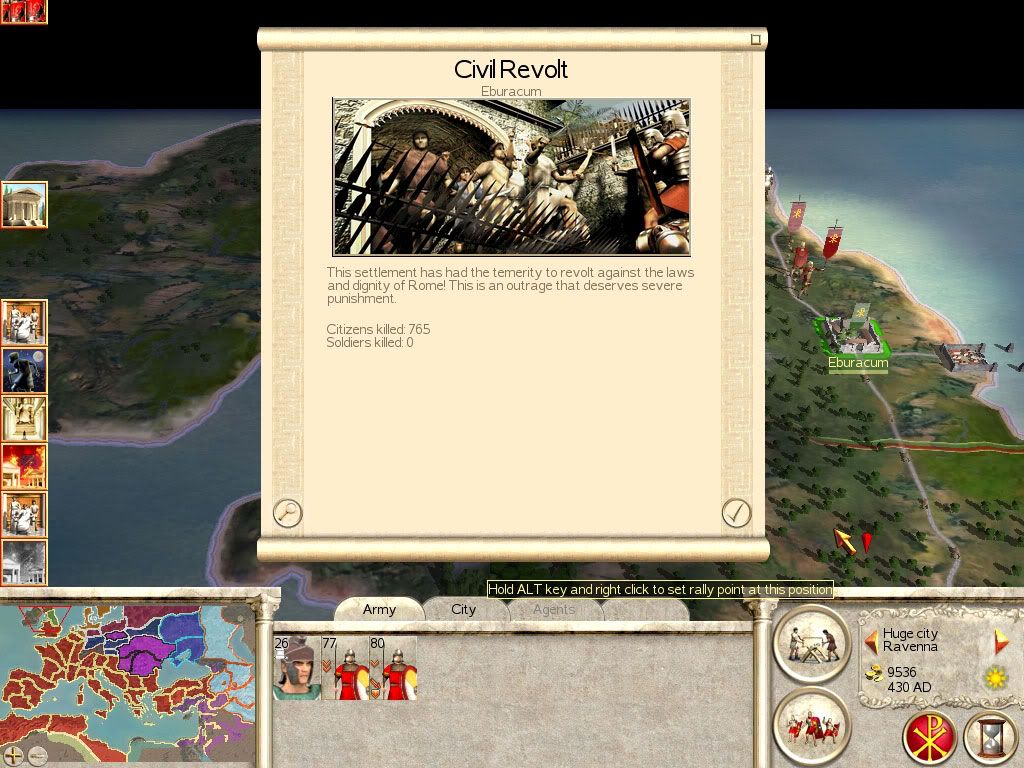
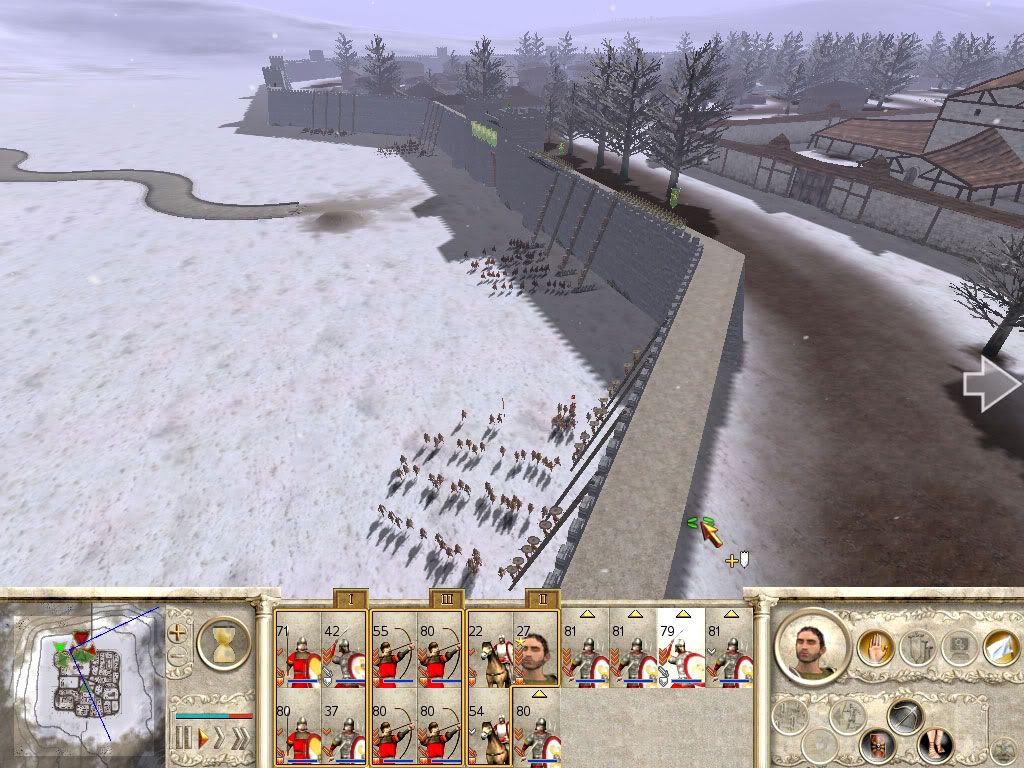
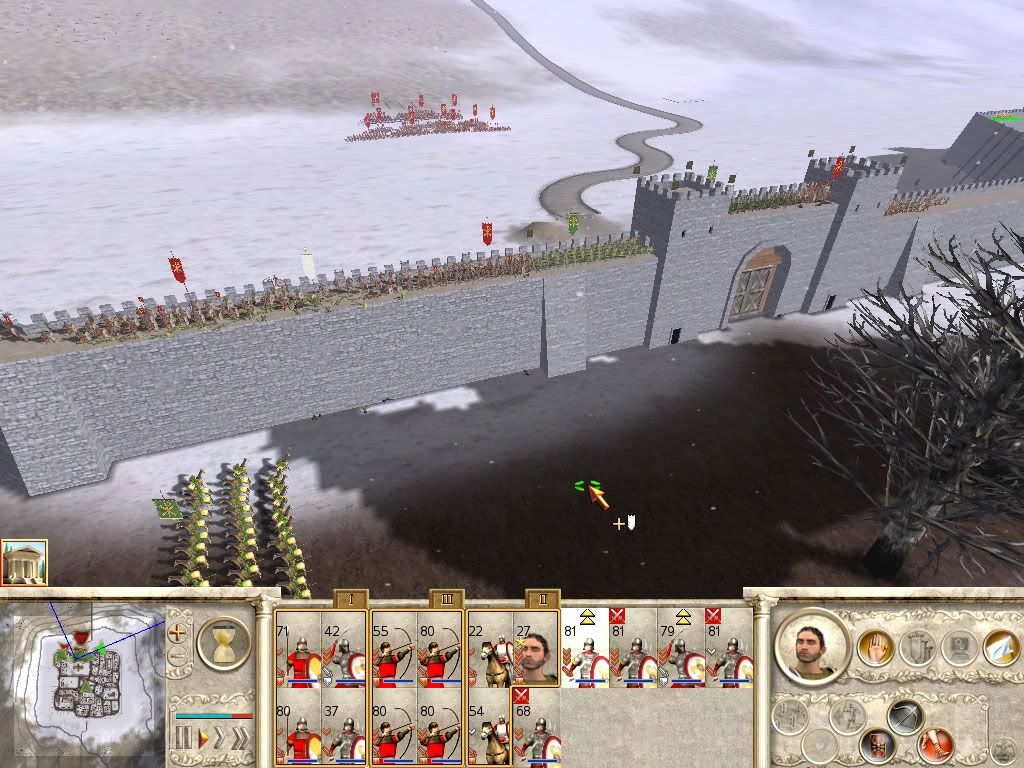
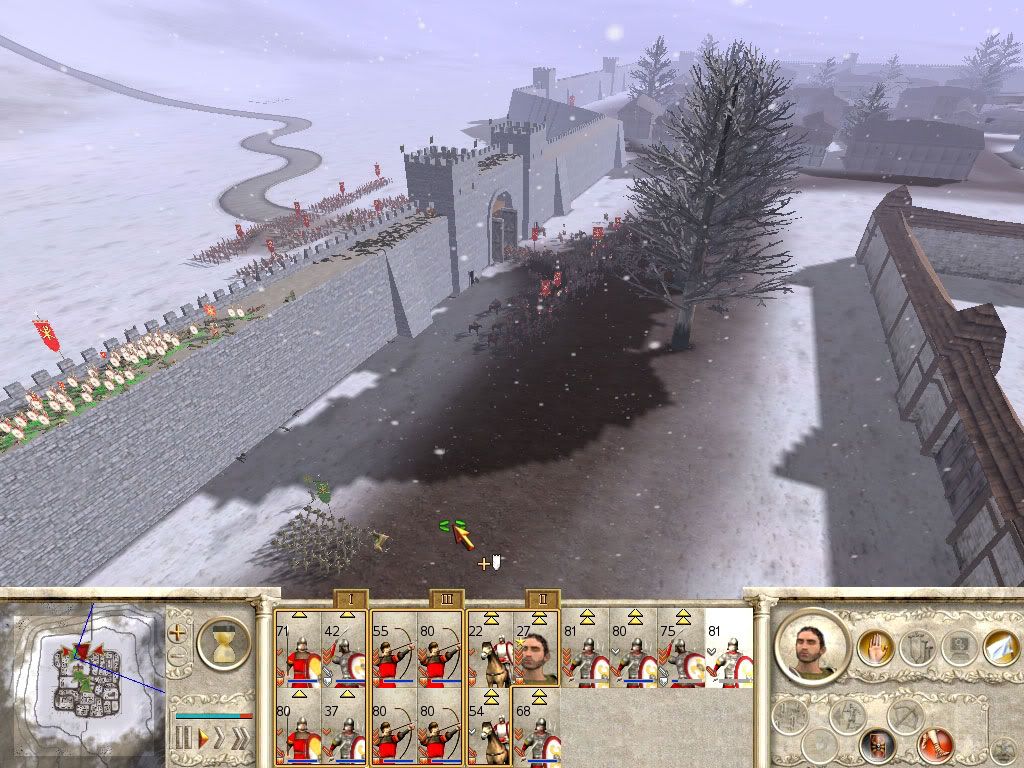
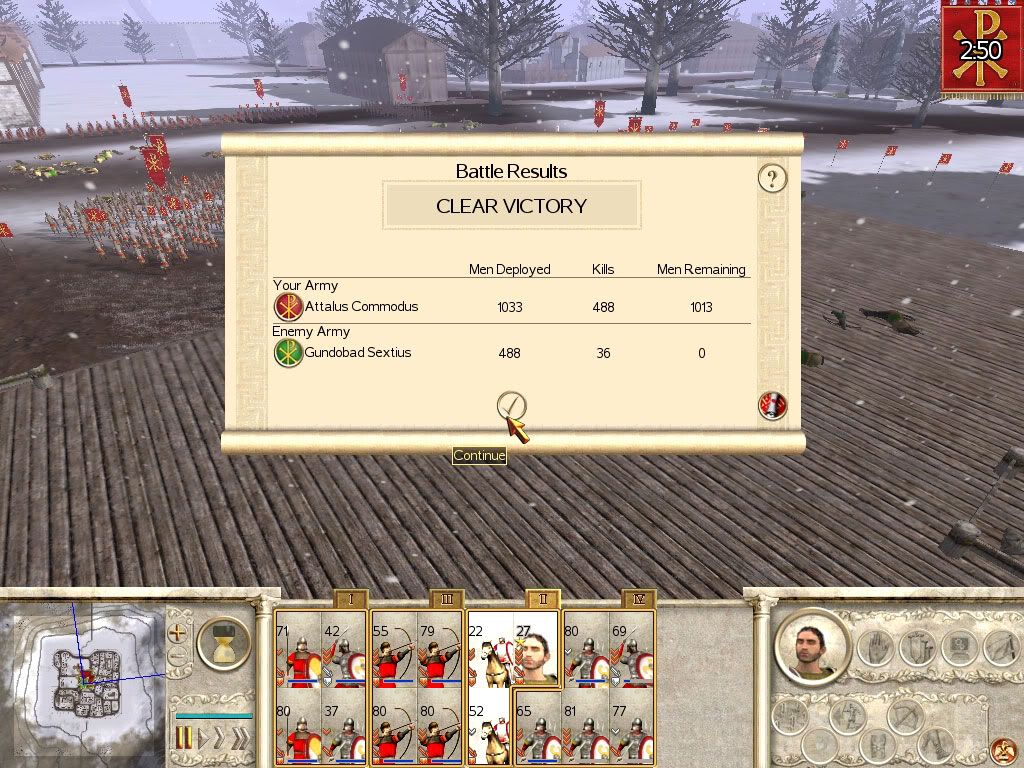
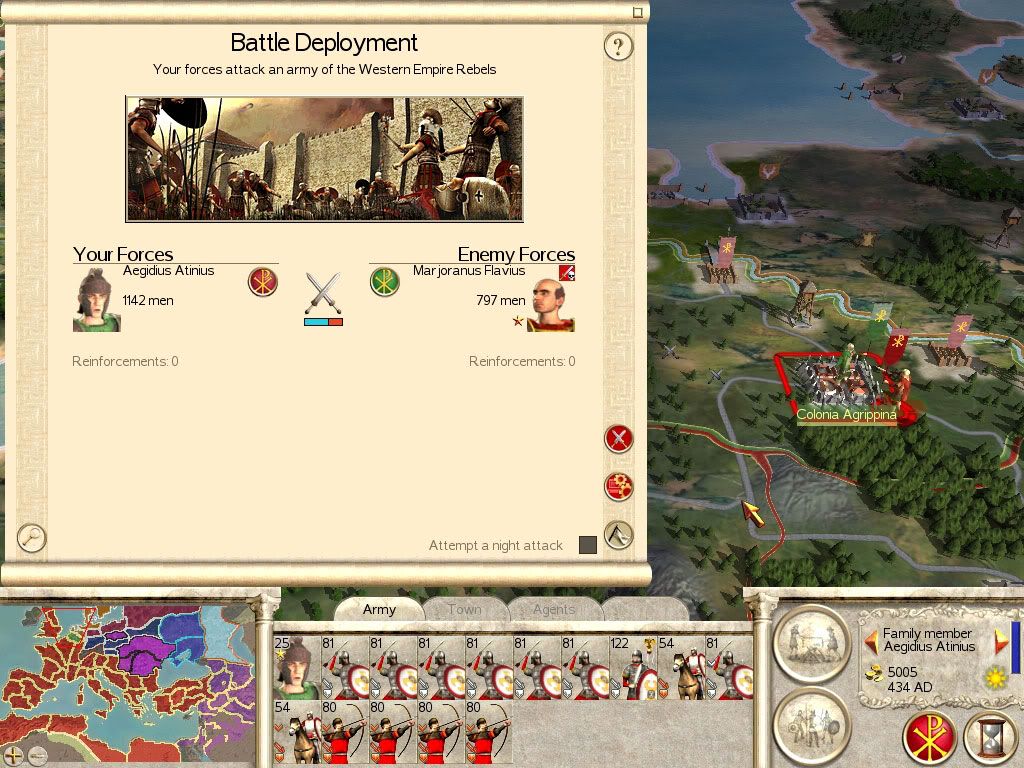
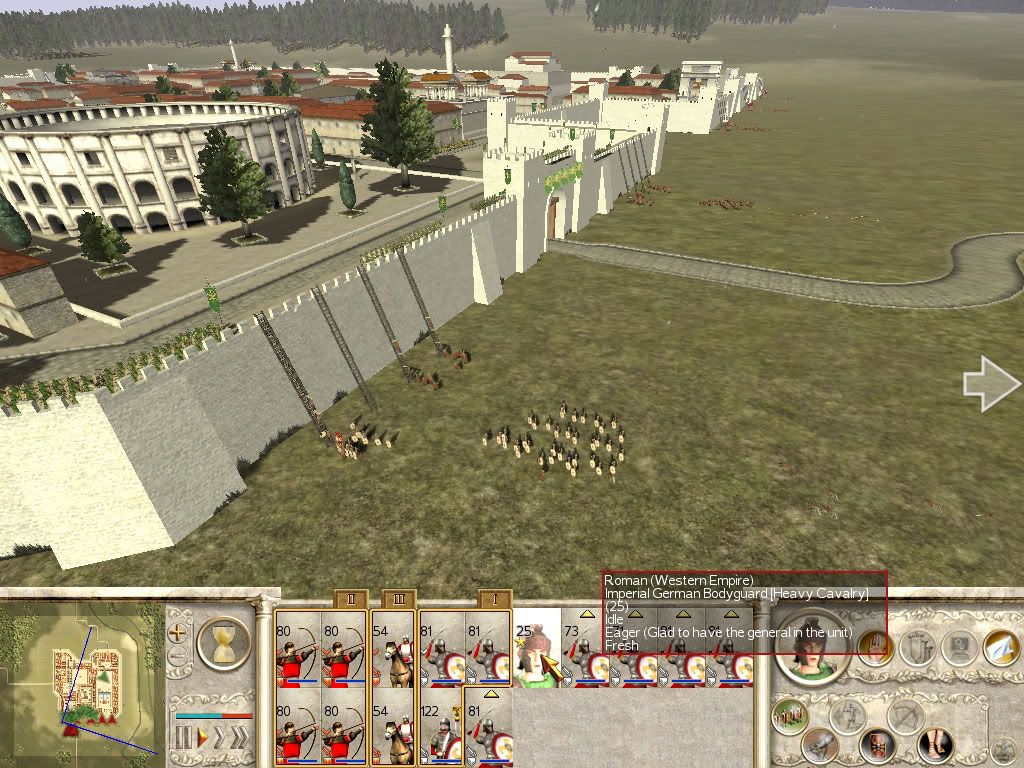
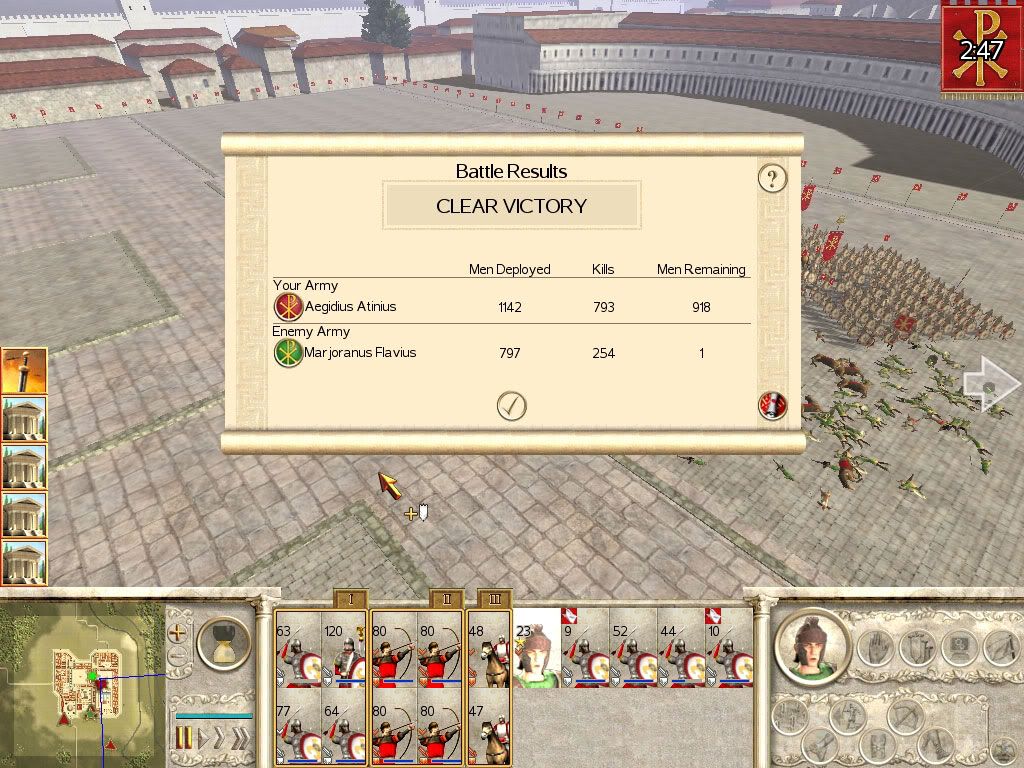
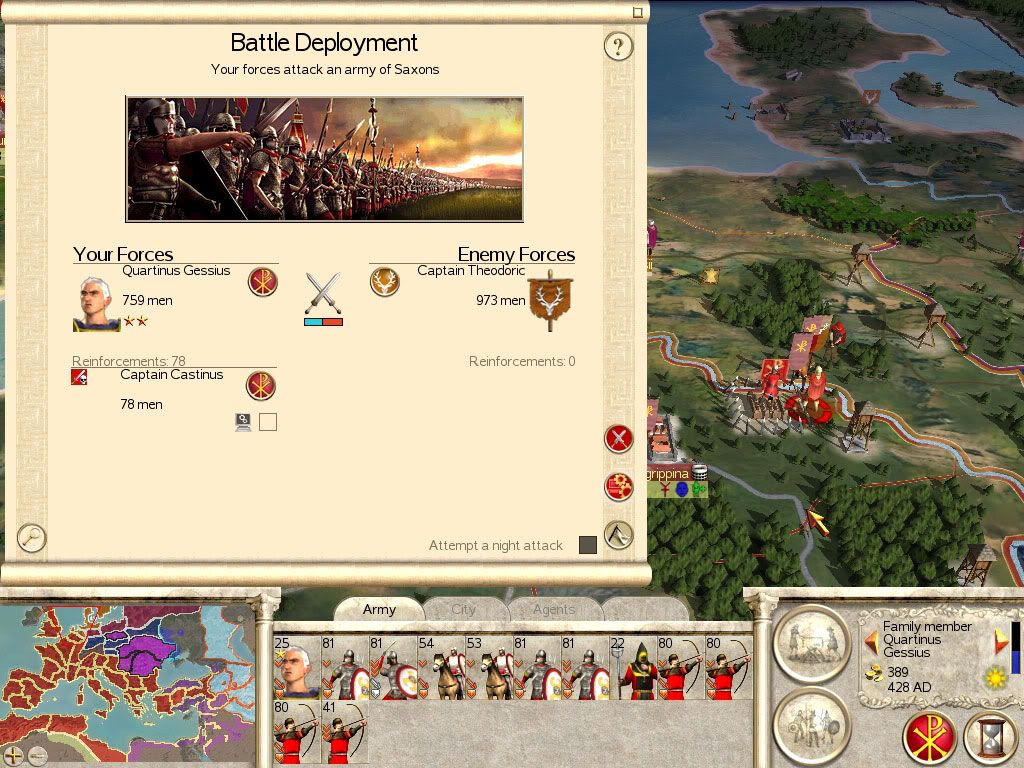
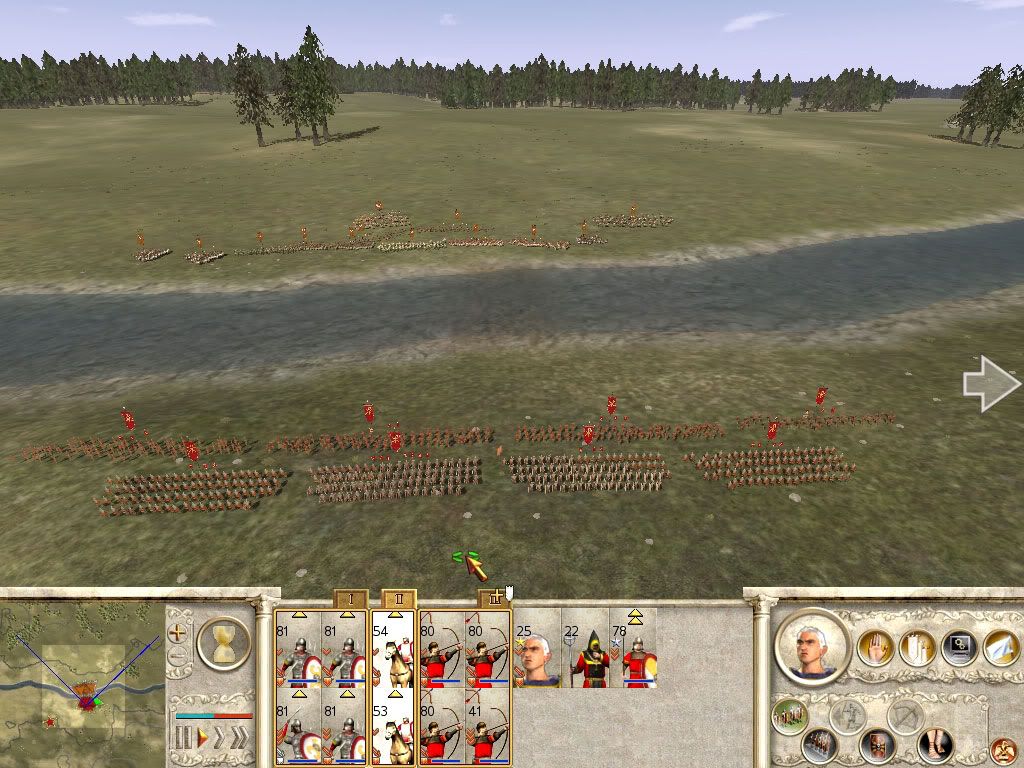
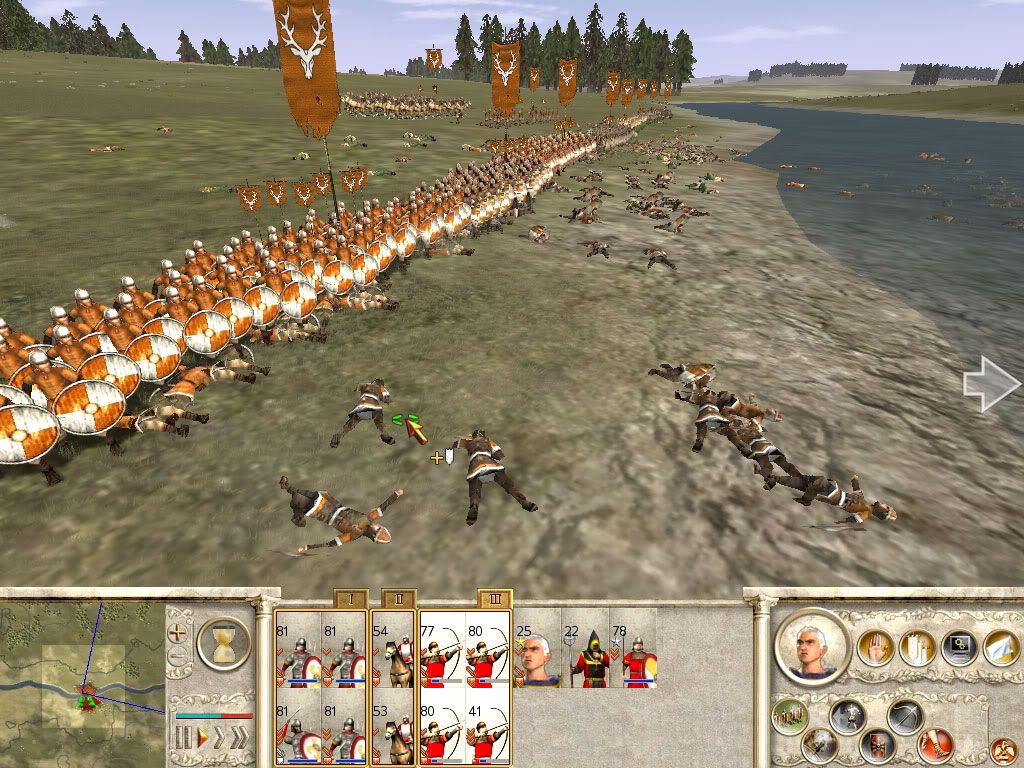
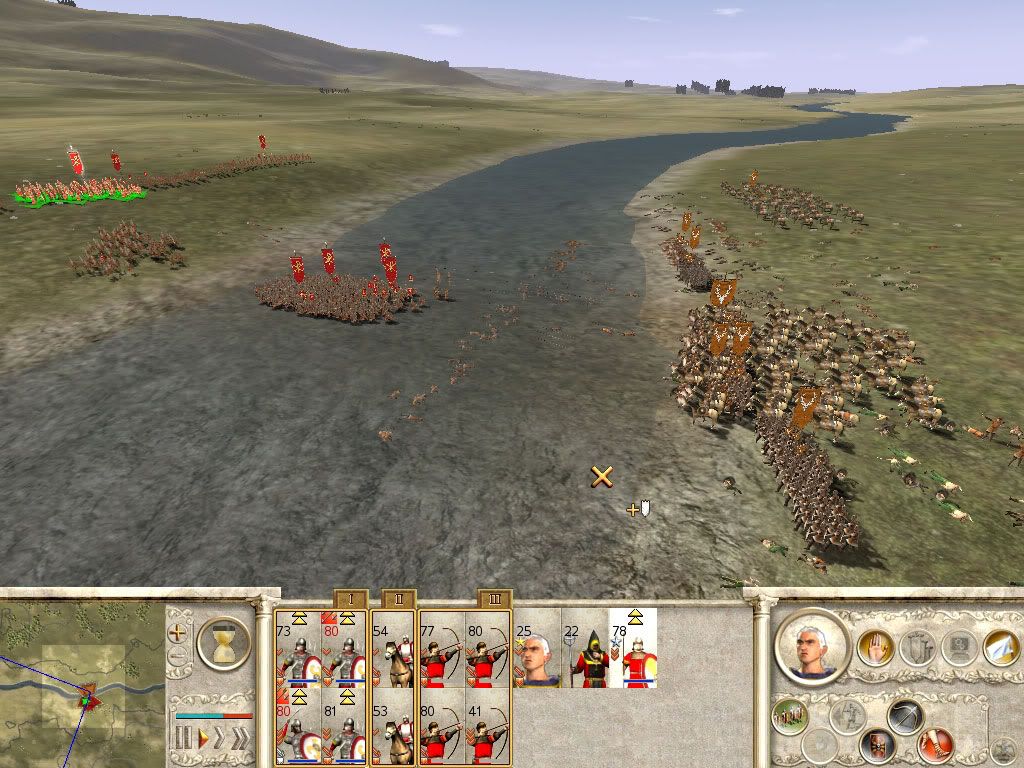
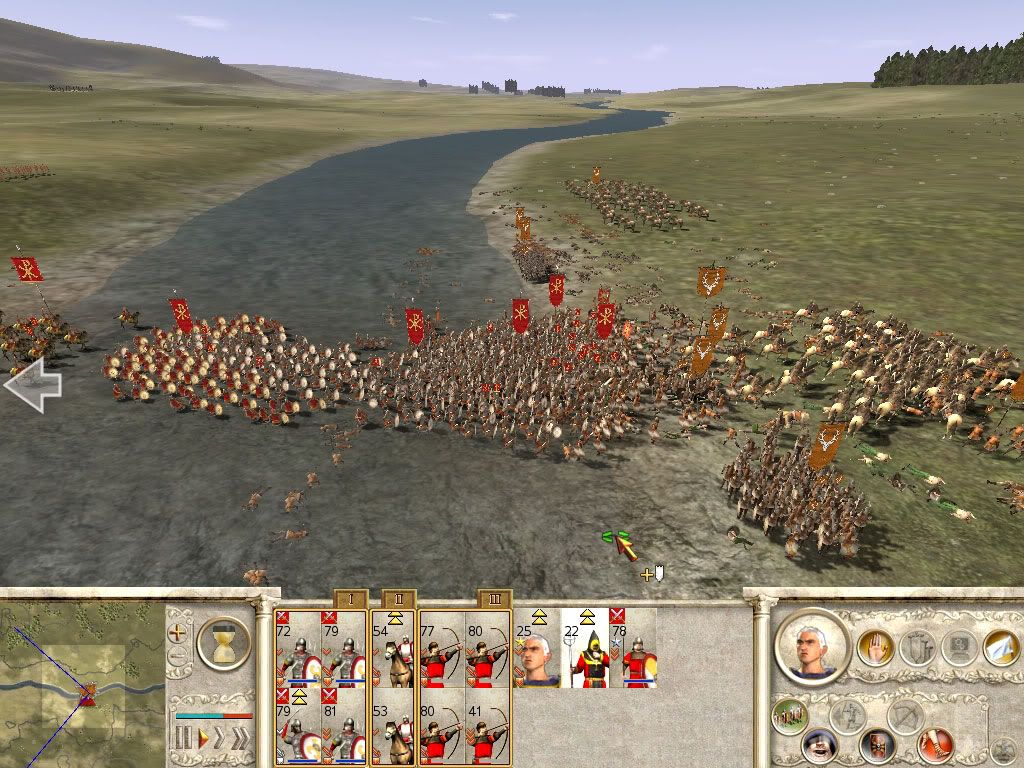
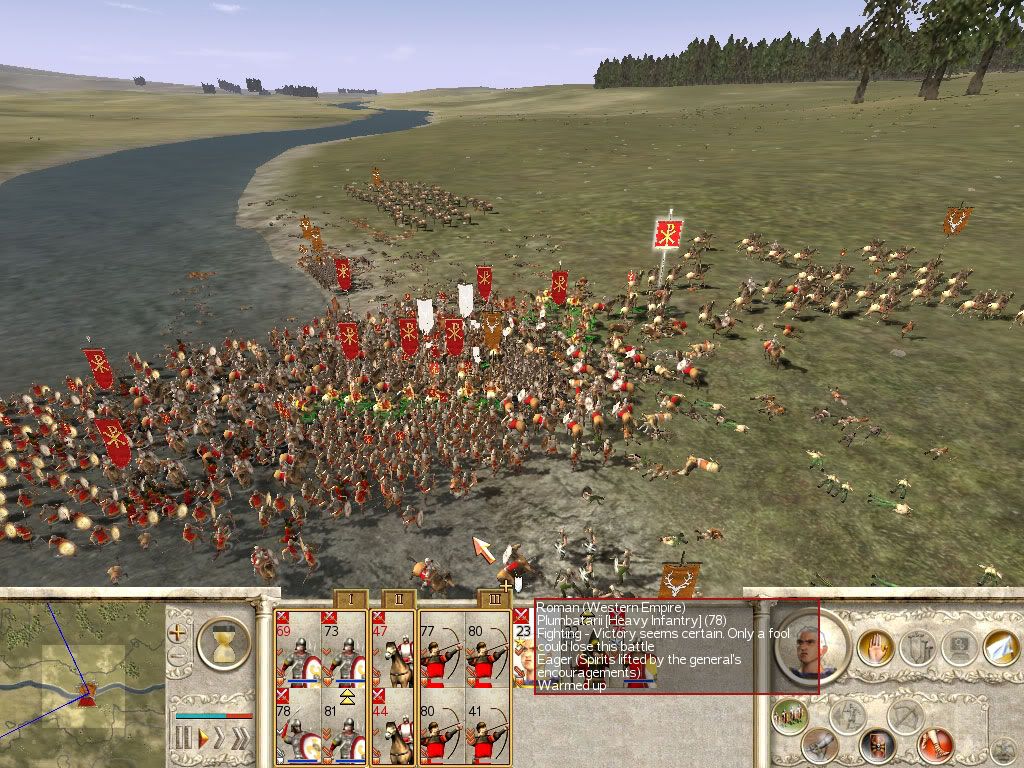
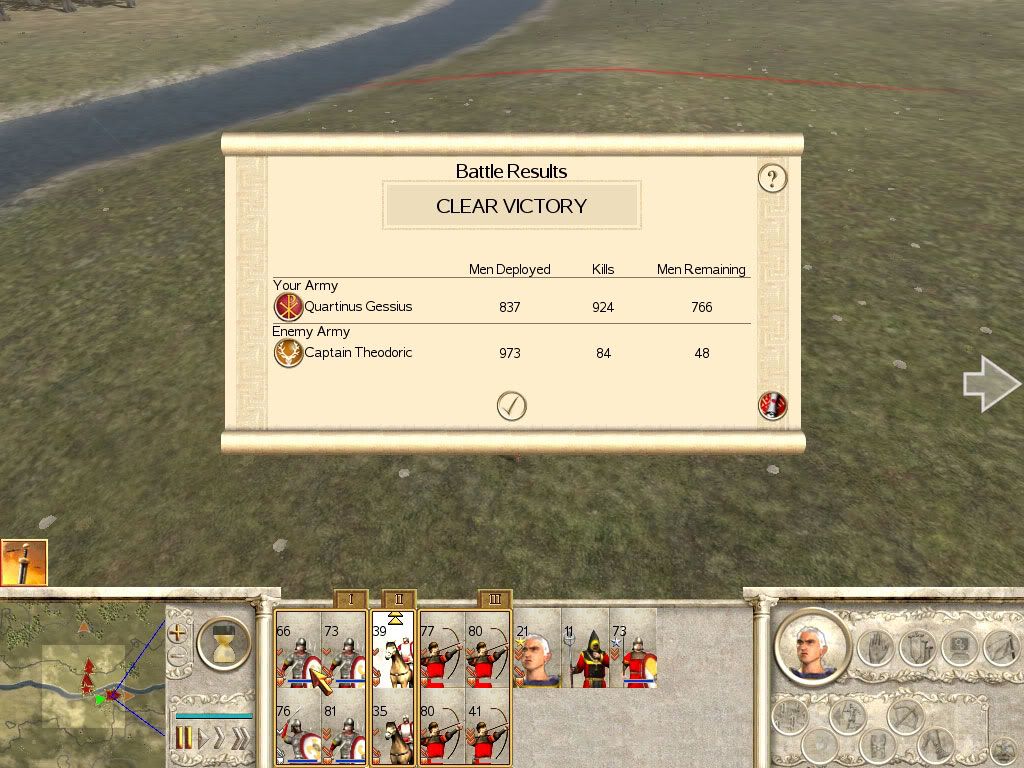
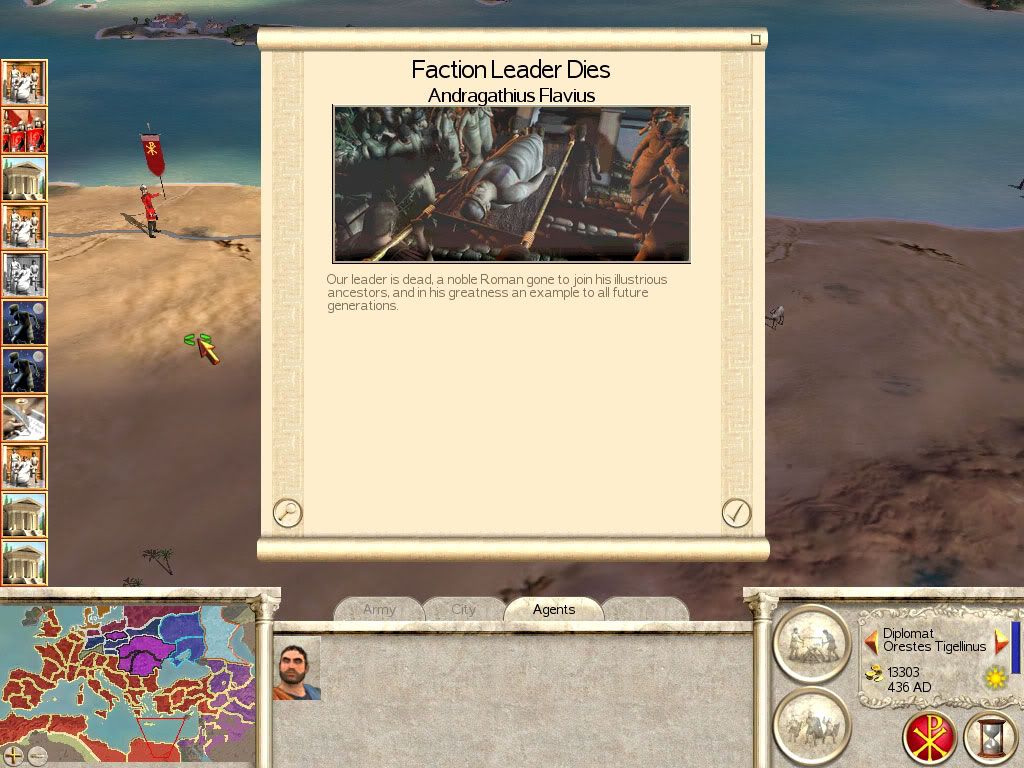
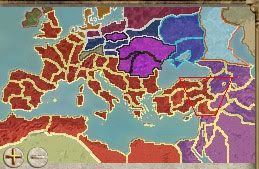

 Reply With Quote
Reply With Quote
Bookmarks